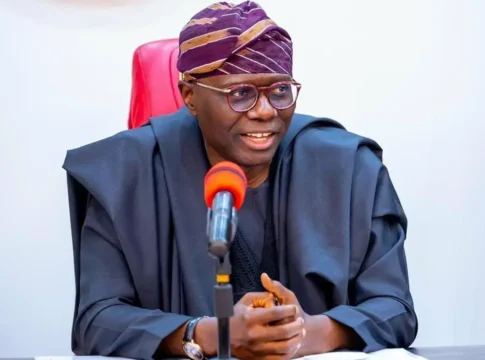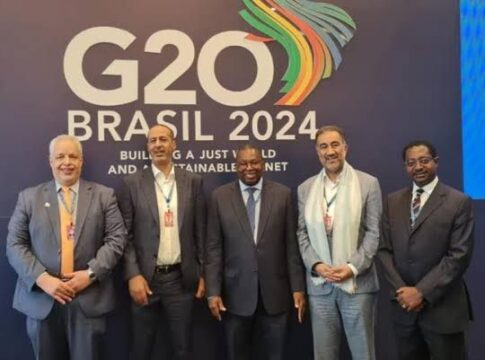Lagos State Governor Babajide Sanwo-Olu has presented an unprecedented N3.005 trillion budget for 2025 to the State House of Assembly, outlining a bold vision to transform Africa’s largest city.
Dubbed the “Budget of Sustainability,” the proposal is designed to drive infrastructure upgrades, economic diversification, and social development, while addressing critical needs across education, health, and security.
The proposed budget, presented on Thursday during a session presided over by Speaker Mudashiru Obasa, comprises an estimated total revenue of N2.597 trillion and a deficit financing of N408.9 billion.
Internally Generated Revenue (IGR) is projected to contribute N1.97 trillion, while N626.1 billion will come from federal transfers. “This budget is not just a statement of intentions but a practical, actionable framework designed to impact lives,” Sanwo-Olu said.
Breaking down the allocations, N1.76 trillion—nearly 59% of the budget—has been set aside for capital expenditure to fund critical infrastructure projects. Meanwhile, N1.24 trillion will go toward recurrent expenditure to sustain ongoing operations. Key sectors such as economic affairs, education, and healthcare received significant allocations, reflecting the administration’s priorities.
Economic affairs will be allocated N908.7 billion, followed by N233.2 billion for the environment, N208.4 billion for education, and N204 billion for health. Security and social protection programs will receive N124.1 billion and N47.1 billion, respectively.
Sanwo-Olu highlighted the people-focused approach of the budget, emphasizing its intent to benefit residents in every corner of Lagos. “From students in Yaba to farmers and fishermen in Epe and Badagry, from business executives on Lagos Island to factory workers in Ikorodu, this budget is about building a Lagos that endures,” the governor stated.
The budget is anchored on five strategic pillars aimed at ensuring economic stability and social inclusion: Infrastructure Sustainability, Economic Diversification, Social Inclusion and Human Capital Development, Environmental Sustainability, and Governance and Institutional Reforms. Each pillar is geared toward enhancing the state’s resilience while positioning Lagos as a leading global economic hub.
The proposed budget also aligns with Sanwo-Olu’s long-term vision to recalibrate Lagos’ economy for sustainable growth. “This budget recalibrates our economy, stimulates growth, and strengthens the positive trajectory of our state. Sustainability is not just about preserving resources; it’s about creating opportunities for the future while meeting present needs,” the governor explained.
Addressing lawmakers, he called for collective effort to achieve the budget’s objectives. “As we prepare for the approval and implementation of this budget, I urge every one of us to play their part in building a sustainable Lagos,” he said.




